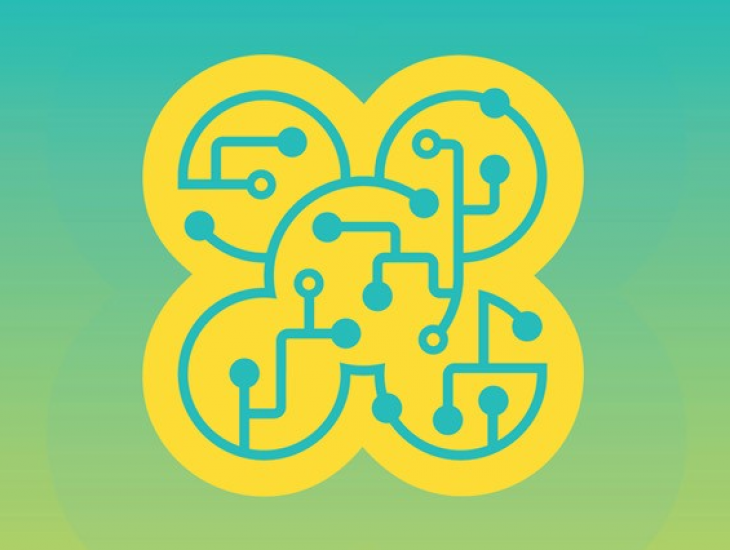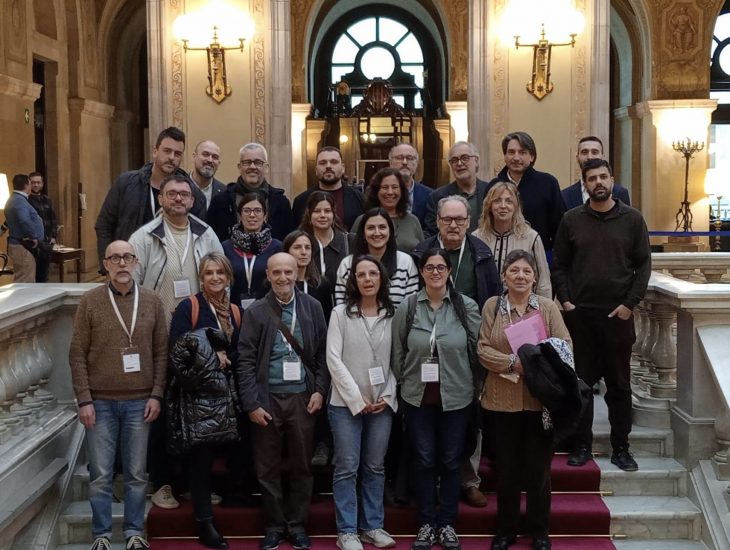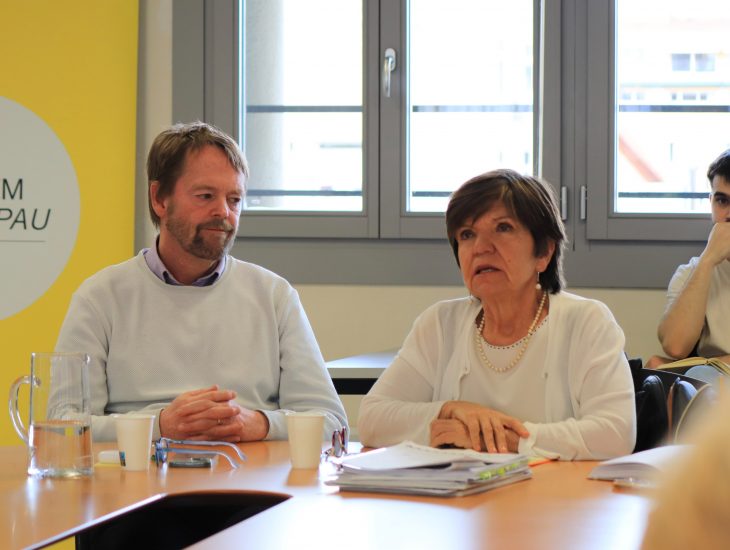Some fifty people attended the presentation of the book El tiempo de Ayotzinapa on Thursday 9 March. The book was presented by its author, Carlos Martín Beristain, who is also a member of the Independent Interdisciplinary Group of Experts (GIEI, for its abbreviation in Spanish). The event, organized by ICIP and Taula de Mèxic, included the participation of Elena Grau, coordinator of ICIP’s Training and Dissemination Area, and Arturo Landeros, representing Taula de Mèxic.
The night of 26 September 2014, 43 students disappeared and six more people were killed in the Mexican state of Guerrero. In “El tiempo de Ayotzinapa,” Carlos Martín Beristain, one of the investigators of the events, narrates in first person how the process to clarify the truth was carried out and invites the reader to join him on the trip. “When we decided to write a report about the investigation we thought that no one would believe us because the story is so incredible,” says the author. That’s why he decided to write a crime novel “which would go further and explain the story of what happened” during the months-long process of collecting evidence and drafting the report.
The book, which might seem !ike fiction, reflects the desire of the investigating team to dispel the “fog of silence” surrounding the events. It is obvious to the author that “there was an attempt to create a closed story, which was refuted after contrasting the evidence. It is a case of forced disappearance carried out by state forces, not by drug traffickers.”
In light of all the questions raised by the case, the GIEI’s objectives were to find the disappeared young people, carry out a criminal investigation to clarify the facts, and assess the attention given to the victims. “Every dramatic event needs an explanation. The fabricated story needed to be deconstructed to avoid blaming the victims and to provide answers for the families. Up until then there had only been distorted explanations assigning blame, which generated conflict among the victims. We had to conduct dialogue work to help them understand what had happened,” added Carlos Martín.
Regarding the on-the-spot investigation, he highlighted how shocked he was with the way the victims’ families were treated: “The disappeared students’ parents asked us to always tell them the truth and not to sell out because we were the only people they trusted. We had never been told anything like that before,” said the investigator. “Details like that give you an idea of how deep a story is.”
Before concluding the presentation, Carlos Martín Beristain admitted that it was difficult for him to write the book because of the “pain and anger” he felt about the case. Although the truth has still not been discovered, the investigator wanted to end on a positive note regarding the progress made by the GIEI: “We were able to prove that, with international investigation standards, we can solve cases. It is an example for academics, civil society and governments.”
10.01.2017



